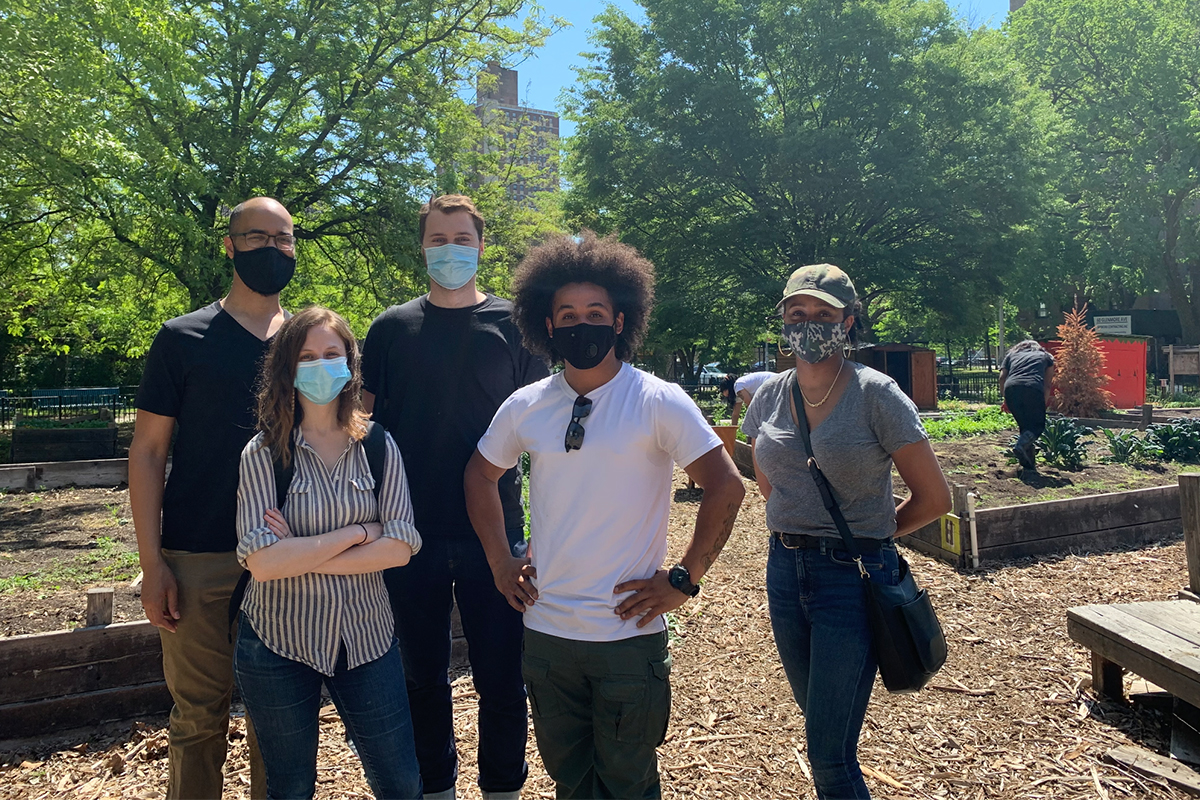
The Urban Design Forum’s 2020 Forefront Fellowship, Cooperative Works, explored how to support minority-owned businesses and workers of color, expand worker cooperatives, and democratize economic resources to build a more inclusive economy. In partnership with the Deputy Mayor for Strategic Policy Initiatives and the Mayor’s Office of M/WBE, Fellows investigated how to create economic opportunity for MWBEs and employee-owned businesses through climate investment, leveraging Local Law 97.
This spring, Fellows developed original projects that explore how to build local power through composting, develop innovative financing for green cooperatives, and scale green entrepreneurship. Explore all proposals here.
by Polina Bakhteiarov, Matthew Khinda, Darina Mayfield, Neil Muir, Aden Munassar, Karen Narefsky
Creating and sustaining green careers — not just jobs — requires supporting entrepreneurship and grassroots businesses alongside a holistic and long-term approach to training and workforce development. Compost Power is an exemplary model of green entrepreneurship that has the opportunity to generate meaningful careers in composting for NYCHA residents and BIPOC New Yorkers while changing the perception of composting in the city environment. By supporting the operations and growth of Compost Power, we directly fostered a green careers pathway while also developing a broader set of best practices to support other green entrepreneurs, M/WBEs, and workers of color.

Our team, along with Compost Power’s Domingo Morales, built capacity at Compost Power via four work streams: hiring, training, marketing and communications, and partnership building. We focused primarily on:
- Aligning with Green City Force’s workforce development resources to facilitate the hiring of qualified community members for a variety of on-site roles;
- Developing training materials specific to Compost Power to ensure that future employees have the knowledge needed to succeed in the field and the organization;
- Working with designers at Partner & Partners to outline and develop web-based and print brand identity; and
- Facilitating a community partnership in Queens where Compost Power has sought to expand its footprint.
Through our partnership, we’ve learned that success in green entrepreneurship or M/WBEs comes from knowing your landscape deeply, and focusing on your core services. Domingo knows the composting landscape (where composting sites are located, who operates them, what methods of composting are used, etc) and his core services (training others to compost and operating compost sites for NYCHA residents), so identifying partnerships and avoiding overlaps puts Compost Power in an advantageous position to grow. Partnering with organizations that specialize in areas that his small business does not frees him up to focus on the portions of the business where he adds most value. This cooperative mindset leads traditionally independent entrepreneurs to become influential through creating and sustaining long-term services and careers.